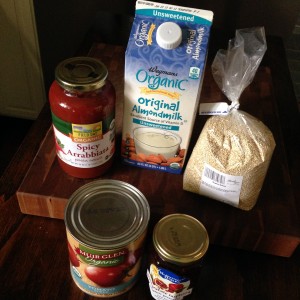7 Things to Know About Organic Agriculture
 Have you noticed that grocery stores carry more organic products than in the recent past? Some grocery chains used to dedicate entire sections of the store to organics. Now, in many stores, gluten-free aisles have replaced the organic sections, and organic products now occupy the same shelf space as their non-organic counterparts. Organic is [almost] becoming mainstream.
Have you noticed that grocery stores carry more organic products than in the recent past? Some grocery chains used to dedicate entire sections of the store to organics. Now, in many stores, gluten-free aisles have replaced the organic sections, and organic products now occupy the same shelf space as their non-organic counterparts. Organic is [almost] becoming mainstream.
Organic products usually cost more than non-organic. So, does it make sense to invest your hard-earned dollars in them? Knowing some facts about organic food production might make your decision process easier.
Here are seven facts about organic food production in the United States.
- The Organic Foods Production Act (OFPA) was enacted in 1990 to establish standards for the production and handling of foods labeled “organic.”
- Primary goal of organic agriculture: To optimize the health and productivity of soil life, plants, animals, and humans—communities, which depend on one another.
- Organic farmers use renewable resources and conserve soil and water with future generations in mind.
- Animals do not receive antibiotics nor growth hormones.
- Conventional pesticides are not used on produce. Synthetic fertilizers, sewage sludge, bioengineering, and ionizing radiation are not allowed.
- Government-approved certifiers must inspect farms before their food can be labeled organic.
- Organic products are not necessarily completely free from residues, but pollution from air, soil, and water are minimized.
For more information on organic food production, visit the USDA’s Website:
http://www.nal.usda.gov/afsic/pubs/ofp/ofp.shtml
Ann Silverthorn writes about a wide variety of topics in numerous genres. She’s currently writing a biography on William E. Dimorier (1871-1951), the nearly forgotten poet and assistant principal of Academy High School in Erie, PA, who dedicated his life to the betterment of young people.
Twitter: @annsilverthorn
Instagram: ann_silverthorn




Leave a Reply